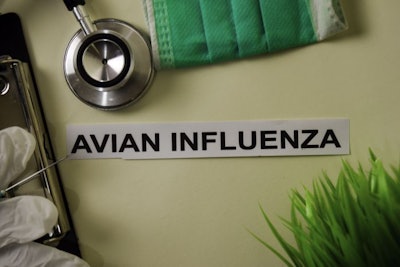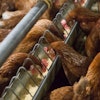
A mild form of avian influenza has been detected in Nigerian poultry for the first time, while Taiwan has reported another outbreak linked to a highly pathogenic virus. In Nepal and Vietnam, the authorities report that the disease has been controlled.
Taiwan’s animal health agency has officially reported just one recent outbreak of highly pathogenic avian influenza (HPAI) in the past two weeks.
According to the Council of Agriculture’s report to the World Organisation for Animal Health (OIE), suspicious signs were seen in one bird among a batch of poultry at a slaughterhouse. After the H5N2 HPAI virus was detected in mid-November, all 11 of the native chickens in the batch were destroyed, and the facility in the Wanhua district of Taipei was cleaned and disinfected.
This was the 17th detection of the HPAI virus in Taipei so far this year. As in previous cases, the infected birds will be traced back to their farm of origin, and further testing will be carried out. Surveillance will be intensified in the area for 3 months.
It was in the first week of January 2015 that H5N2 HPAI virus was first detected in Taiwanese poultry.
In recent weeks, Taiwan has confirmed cases of avian flu linked to other virus types.
Nigeria reports first low-pathogenic avian influenza
A low pathogenic avian influenza (LPAI) virus of the H5N6 subgroup has been detected in Nigerian poultry for the first time.
In its latest report to the OIE, the federal agriculture ministry records that the virus was identified recently by the national veterinary laboratory.
Testing was being carried out as part of an active surveillance program. The outbreak occurred in late June in the northwestern state of Sokoto, which borders Niger. Of the 2,400 poultry at a live bird market, around 150 tested positive for the virus. It appears no birds died or were culled at the time.
Vietnam and Nepal: HPAI situation 'resolved'
Animal health agencies in the 2 Asian states have declared to the OIE that the previous HPAI situation in their respective countries has been “resolved.”
For Nepal, the declaration was made by the agriculture ministry following 3 confirmed outbreaks. The H5N1 HPAI virus was detected at two farms and in one backyard flock between June and August of this year. In total. More than 6,800 poultry were lost to the disease through mortality or destruction of infected flocks.
The most recent outbreak began in a mixed poultry flock in mid-August. According to the official report to the OIE, intensified testing in the surveillance zone around the outbreak and in high-risk areas has revealed no further signs of the disease.
Also in June, the agriculture ministry in Vietnam reported the return of the H5N6 variant of the HPAI virus to the poultry sector after a brief absence.
With the most recent cases confirmed in mid-October, the ministry has declared the disease situation resolved to the OIE. More than 7,700 poultry were lost to the disease from 4 village flocks, all in different regions of the country from the Red River Delta in the north to the Mekong Delta in the south.
Financial compensation for Malaysian farmers
The State government has awarded almost 196,000 ringgit (MYR; US$1,926) in compensation to poultry producers for the HPAI outbreak that occurred in 2018. The pay-out will be shared by 309 producers, including 2 commercial farmers, reports Malaysia’s Daily Express.
Representing the State agriculture minister, the assistant minister said that Malaysia had been preparing to manage possible HPAI outbreaks since 2004. Dr. Daud Yusof said that the cash distribution was part of the government’s commitment to ease the burden on producers whose flocks had to be destroyed to control the disease. The government hoped that the farmers would use the cash to resume production.
More than 34,600 poultry and 4,900 eggs within one kilometer of a confirmed HPAI outbreak were destroyed, according to the report.
Belgium declares freedom from avian flu
In the past week, the Belgian veterinary authority has declared the country’s poultry and poultry farms free of avian influenza. On behalf of the Federal Agency for the Safety of the Food Chain (FASFC), the Chief Veterinary Officer made this declaration under the conditions defined in Chapter 10.4 of the OIE Terrestrial Code.
This latest “renewed attestation” follows 2 outbreaks of HPAI during the first half of 2017, and recovery of the country’s disease-free status in September of that year.
View our continuing coverage of the global avian influenza situation.

















